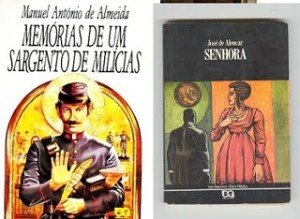
Arquivo para March 30th, 2016
Resentment and ambiguities of the Brazilian
Portrayed by several authors, as “patriarch of brazilian literature” José de Alencar in several novels, but especially Senhora (Lady) portrays mode “dainty” term used by the writer and derided by Martim Vasques da Cunha, depicts the “commodification of love “and not only, but the ambiguity” here is not the result of a technique, but a confusion.” (Cunha, 2015, p. 57).
José de Alencar in several novels, but especially Senhora (Lady) portrays mode “dainty” term used by the writer and derided by Martim Vasques da Cunha, depicts the “commodification of love “and not only, but the ambiguity” here is not the result of a technique, but a confusion.” (Cunha, 2015, p. 57).
We returned a little behind, Senhora (Lady is 1875) because some analyzes interested in, for example, Antonio Candido in the formation of Brazilian literature states that “the complex perception of evil, abnormal or repression, as obstacles to perfection and as a permanent element in human conduct “(apud. Cunha, 2015, p. 57), where this complexity is because” we do not know to do anything else but we buy each other “(Cunha, 2015, p. 58).
Clarifies Martim Vasques da Cunha, this “love” is nothing more than the transposed romanticism of Europe to base our own intentions, that already manifest in money suitors in Eugenie Grandet of Balzac (1833) or Madame Bovary more faithful to romantic style published in 1857.
Properly analyzed by Vasques da Cunha, Memórias de um Sargento de Milícias (Memoirs of a Militia Sergeant – 1854) is a more realistic picture of the Brazilian romanticism of the time, where “the exuberance of language added to the clear and direct summer goes against any attempt to sweeten the characters who move in imperial society through an overblown rhetoric “(Cunha, 2015, p. 60).
The difference between Alencar and Manuel Antonio de Almeida is that “this avoids making any kind of moral judgment in his account” (Cunha, 2015, p. 61).
The contradiction of Leonardo character, son of Leonardo Pataca, despite the subtle criticism of the court society, it seems in certain analyzes, such as Antonio Candido to praise the “dialectic of trickery,” but that is only still strong signs romanticism in style, as said Cunha (pg. 62) that “all is well that ends well.”, any example is Zé Carioca in the Disney filme: Hello friends in 1942 ( Alô, amigos de 1942) is a brazilian´s trickery.
CUNHA, Martim Vasques da. A poeira da Glória: uma (inesperada) história da literatura brasileira, Rio de Janeiro: Record, 2015.

